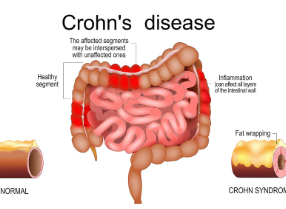New Treatment for Crohn’s Disease
Recent research marks the potential of filgotinib for treating Crohn’s disease, published in The Lancet Gastroenterology & Hepatology, examined filgotinib’s safety and efficacy. Crohn’s disease leads to chronic inflammation in the digestive system. Current therapies often fall short due to side effects and diminishing effectiveness.
Study Overview
The study involved 371 centers across 39 countries and adhered to strict ethical standards. Adults with active Crohn’s disease were enrolled based on specific symptoms and lab results. Participants were divided into two groups – those with no prior biologic therapy and those with previous treatments.
Treatment Protocol
Participants received either filgotinib (200 mg or 100 mg) or a placebo over 11 weeks. Those showing improvement were reassigned for an additional 58 weeks. This phase allowed for continued assessment of filgotinib’s effectiveness.
Results of the Study
Filgotinib was generally well-tolerated by participants. The 200 mg dose showed symptom relief. However, results for intestinal healing were mixed. Over the longer 58-week phase, 200 mg filgotinib consistently outperformed placebo in maintaining symptom relief and endoscopic improvement.
Side Effects
Most side effects were mild to moderate, including abdominal pain, headaches, and nausea. Serious side effects, such as disease flare-ups, were rare. They occurred at similar rates across all treatment groups. Importantly, no deaths were reported during the study.
The study indicates that 200 mg filgotinib is a promising option for Crohn’s disease management. It is effective and generally safe, aligning with its known safety profile. This offers hope for improved treatment strategies for those affected by this challenging condition.
GKToday Facts for Exams:
- Filgotinib is a selective JAK1 inhibitor. It is being studied for treating autoimmune diseases. Its efficacy in Crohn’s disease shows promise for long-term symptom management.
- Crohn’s Disease is a type of inflammatory bowel disease. It causes chronic inflammation in the digestive tract. Symptoms include abdominal pain and severe digestive issues.
- The Lancet Gastroenterology & Hepatology is a peer-reviewed medical journal. It focuses on studies related to gastrointestinal health. It publishes research findings in this specialised field.
- JAK1 Proteins are part of the Janus kinase family. They play a role in cell signalling pathways. Targeting JAK1 can modulate immune responses in various diseases.
Month: Current Affairs - December, 2024
Category: Science & Technology Current Affairs




